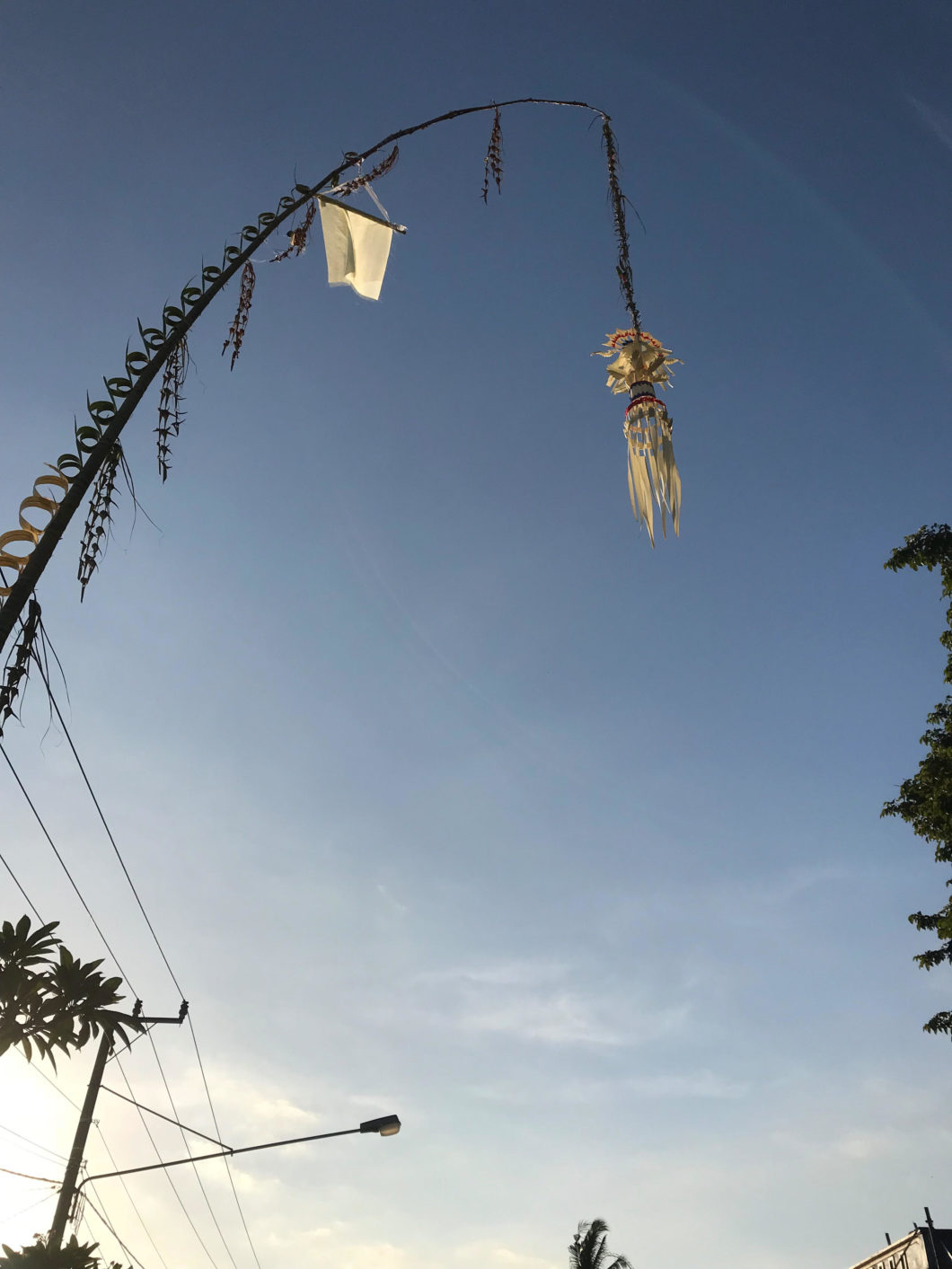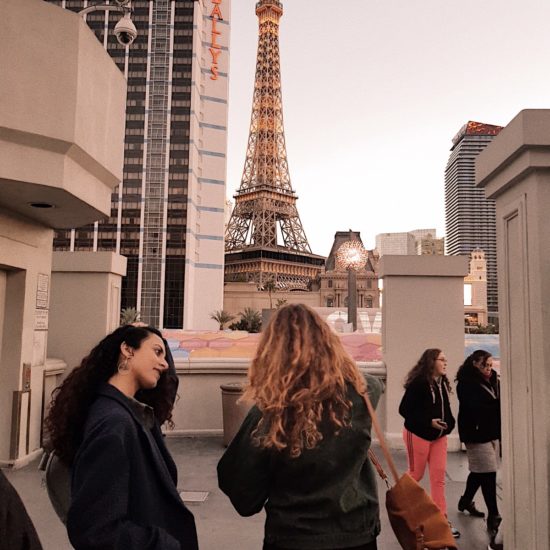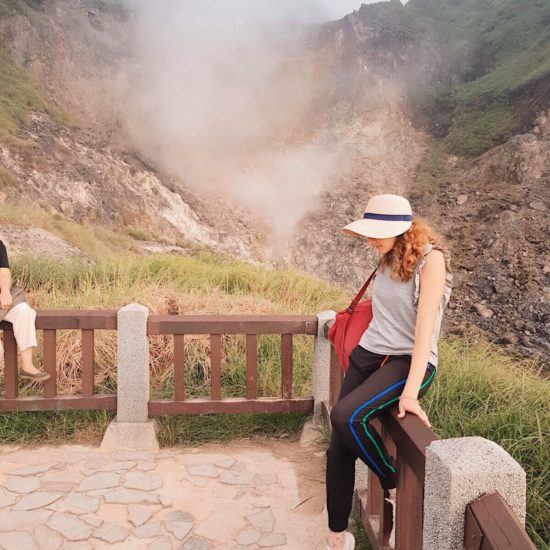Dragging our suitcases up the street, I take a last look at the penjors now standing outside of every home, every temple
in preparation for one of the biggest ceremonies of the year — Galungan.
Impressive offerings made of bamboo poles and coconut leaves curve like long paper candy canes into the air, coiled loops and spiked mohawk edges defining the curves.
It’s these scenes, these offerings, these signs of the daily rituals, that I will hold onto most about Bali. Their mystical quality making real the allure of a place that’s been hyped for decades.
The scent of incense burning.
The clanking and clashing sounds of traditional music emanating from temples as we pass.
The greenest green of the rice fields and the jungles that distract us, gaping in their glory, on our drives.
Almost to our taxi, I smile at a young boy sitting on his mother’s lap giggling. How cute, I think.
I look at the mother to give a nod and catch a different expression. I look away, feeling inexplicably guilty for having looked at her son.
A little moment, one that probably means nothing. A projection from my side, most likely, nothing more.
But for all of the lush and abundant beauty of Bali, the reality is more textured, more complex, more bittersweet.
Full of the friction that comes from a place that has too long been held up as paradise.
Too long idealized.
Too long attracting yoga-seeking, rootless, neo-hippie types
and the oblivious holiday goers who are only looking for cheap prices and a good time.
The consequences of such an environment —
a wall we notice, ever-so-slightly at times,
at others, more apparent.
In the way locals view us “bule”—
foreigners, white, tourists.
Colonial times were long ago
is what they tell us
“History is history, we have no problem now,”
they say
on the surface
but the truth feels deeper
and more muddled,
as it always is.
Maybe subconsciously,
yet, then again, maybe not,
a lack of respect,
for our kind,
and I can’t blame them persay.
When I look around at fellow tourists,
I often shake my head or roll my eyes in shame.
Yet the sharp tongued comments made when we politely
turn down a taxi, a woven bag, a sarong,
feel unwarranted.
The murmurs from hotel staff when we walk to our seat at breakfast,
unsettling.
Fake smiles plastered on faces
because they want our money,
emptying.
A wallet,
no more.
“You’re from Europe, you have money”
the phrase we keep hearing
that makes it okay.
Sure, it is what it is.
And, as always, the occasional moments of
true connection
cut through
all of the moments
that rub the wrong the way.
I’m crying no river,
but it’s a side no one talks about.
No bloggers mention the trash littering every stream, every beach,
the way locals easily drop their wrappers on the ground or
add to the growing trash heaps in their villages
the lack of hygiene at every restaurant —
fancy or cheap.
A fellow traveler we meet:
“Yeah, but that’s just Bali.”
Ok, we think.
Sure,
yet would you say the same if this place was your home?
Realities of the country, the government, the world order, perhaps.
Poor management, corruption, a lack of infrastructure and public services?
we speculate.
It is what it is.
It is both the charm and the disappointment.
The luxuriant offerings of food and flowers left out at entrances every morning
and the thousands of ants they attract in turn.
It’s a place everyone wants to go.
It’s a place – seemingly – no one wants to really see.
Driving to the airport,
the sun is setting in hues of electric orange and pink.
I try to make sense of my impressions and thoughts,
filtered through my lens.
Understand them for what they are.
Try to see Bali like any place, any person
incapable of knowing in one meeting
yet inevitably sizing up on first glance.
I try to hold space
for its beauty and its imperfections,
all there,
sitting on one plane.
I strive to see it
for what it is.
(Visited 108 times, 1 visits today)




